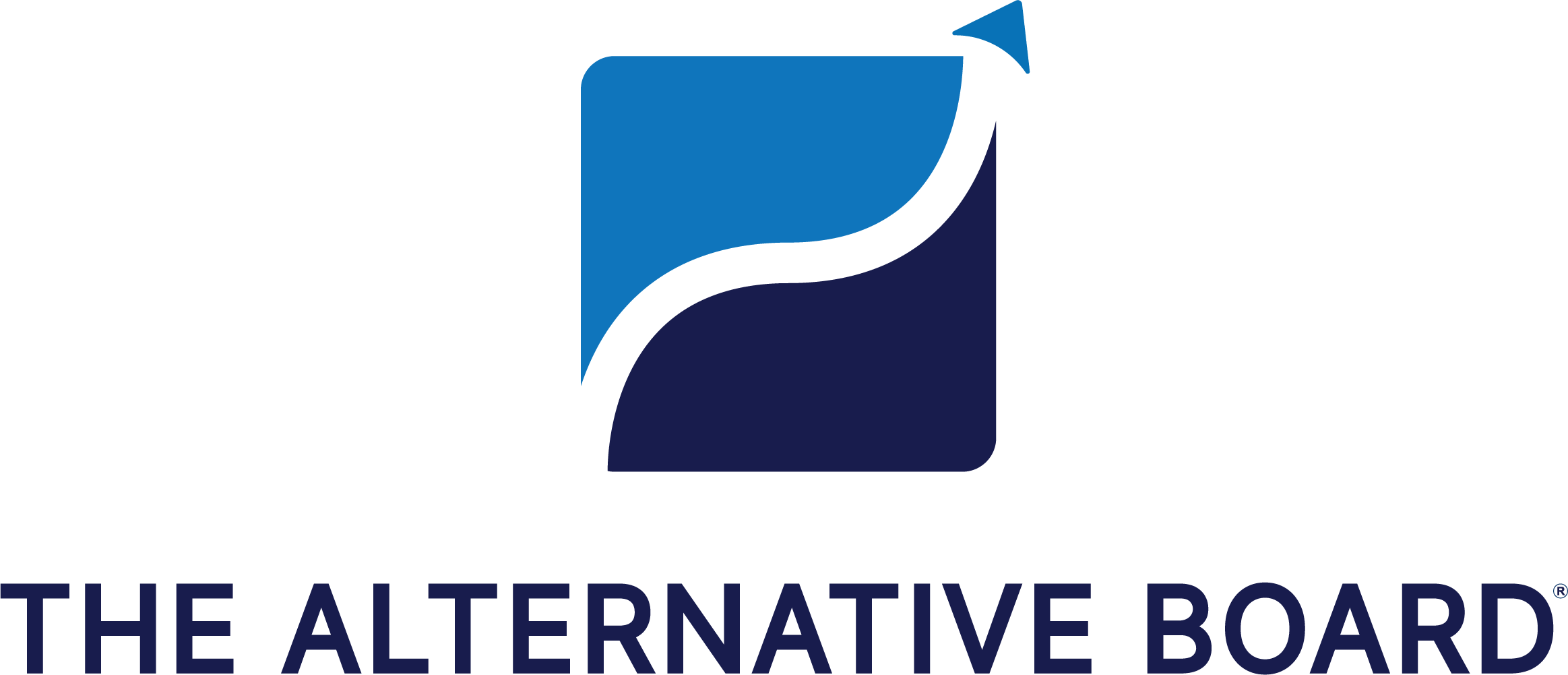When you’re a business owner, your best lessons often come from two places: failure or wise words from leaders who have been there. There are going to be unavoidable ups and downs in every career, but taking advice from leaders who have already learned some lessons the hard way can help you avoid mistakes and accelerate your success.
Read on for 15 pieces of the best advise our business owners have ever received and
deemed essential to their success.
1. Trust is Key to Any Relationship
I have come to appreciate how important trust is in any relationship, and that trust is equal to one’s reliability, plus credibility, plus intimacy divided by one’s self-interest. The best advise I was ever given in this regard is that “No one cares how much you know as much as they want to know how much you care!”
Bob Dodge, President at The Alternative Board – Denver West
2. Invest in Culture
Working with a large number of manufacturing companies, I saw many of them invest heavily in safety initiatives, quality initiatives, and productivity improvement initiatives. One of the best leaders I have worked with is currently the leader of over five manufacturing facilities. He told me that he has found safety, quality, and productivity are all outcomes of the right culture. He showed me that when you focus on building the right culture and have the right people in the right seats, improvements in all other areas become exponentially greater. Even when it seems there is no time to work on culture, it can be the best time and money investment for your operation.
Steve Drury, President/Owner at TAB Focused Directions and Colorado Springs
3. Adapt and Align
My software startup moves fast. Our velocity in moving from idea to concept, to market is one of our biggest strengths and allows us to implement faster than competitors. However, in remote environments such as the one we’re operating in with COVID, we failed to adjust methodologies and found ourselves working to different end goals and overlapping work. After a coaching session with TAB, I realised I needed to refocus and align our department heads to ensure we’re operating at full potential in our new environment. Several assessments and responsibilities discussions later, we walked away from working towards the same milestones and deliverables understanding the role each department plays in achieving them. We would have lost weeks of productivity without jumping into this alignment project when we did. Thanks, TAB!
Dan Kasper, TAB Member, CEO of Wishlist
4. Restructuring Your Marketing Budget
During a TAB meeting early last year one of our new members was talking about her marketing budget and to my surprise she included things like networking groups in that monthly budget. This got my thinking and ever since then, I have broken my marketing budget up a bit differently. Realistically there should be 3 subcategories to “marketing” for most businesses:
1) Memberships/Networking: This is for things like Rotary clubs, local chambers of commerce. This is marketing, even if it is one of the less flashy ways to do it.
2) Advertising Spend: This needs to be a separate section inside of your marketing budget and not your entire marketing budget since this money should be specifically devoted to ad buys –whether those be traditional or digital. This is solely the money that goes into Facebook, Google, etc. in order for them to show your ad to your potential customers.
3) Professional Services: You might be thinking “of course the marketing agency owner thinks I should have a specific line item for him” – well, you are right, it makes our lives a lot easier when a client knows they are going to have to pay to get our services and is ready for that with a specific budget. I am not just looking out for Z3 when I say that though. Very few if any organisations actually have all of the skills needed for a modern-day marketing strategy inside of their company. It would be virtually impossible for a marketing director or team of one or two to have the required skill sets, experience, connections, and technologies required to complete a full marketing strategy. This means that you will likely need to hire outside talent for at least some aspects of your marketing every year.
Tim Zercher, TAB Member, CEO at Z3 Digital
5. Be A Lifelong Learner
Nearly 40 years ago, as a younger co-op student, I worked for a wise and experienced leader who once shared, there’s a big difference between 20 years of experience and 1 year repeated 19 times.”
We discussed two take-aways from that advise that have served me ever since:
1. Be a lifelong learner. Know your fundamentals and principles, but remain open-minded for opportunities that may lead to a better way or a valuable perspective.
2. When speaking with or taking advise from others, discern whether you are receiving 20 years of experience or 1 year that has been repeated 19 times.
Both takeaways have served me well.
Wm. David Levesque, President at The Alternative Board – Rochester
6. Establish a Sounding Board
Thirty years ago, when I was about to head off for my first overseas assignment, I was talking with a navy buddy of mine who told me “you will have better success if you establish a group of trusted peers that you can go to for a sounding board when you have tough decisions to make.” I took his advise and when I look back on the toughest roles I’ve had, I recognise that I was successful because I established a group of peers that gave me perspective when I had high dollar, high risk, difficult HR situations, and other tough decisions to make.
Joe Farach, Owner at TAB Georgia Northeast
7. Cashflow is Key
I’d run my business for several years and really believed in knowing my numbers. I’d run the P&Ls every month and compare my results to my goals and past performance. I was proud of how I was running my business and thought I was being a “really good” business owner (so important for my type-A personality). Then I was in a webinar early in the COVID crisis and someone started talking about cash flow projections. I’d heard of this before but didn’t really understand what it meant and why it was important. After that call, I dug in to learn more. This is something I’d been completely missing. I tried it out for my business and saw how essential it was to understand where the cash is and to project where it will be in the coming months. As a business owner, I can now see when cashflow is going to be tight (or a big problem) and I can plan in advance for it (by accelerating deals, increasing my sales efforts, or using my credit). This is so much better than being surprised by a cash crunch!
Laura Drury, CEO/Owner at TAB Focused Directions and Colorado Springs
8. Embrace Change
When I asked my friend Martin about the success of his businesses, he told me that the constant of all successful businesses is the change. You have to constantly adapt to new needs and new market players. We are verifying this need in the last months with the pandemic.
Antonio Rodríguez Chaparro, CEO at TAB Espana centro/sur
9. Employees Aren’t Family
After being in the restaurant business as a Chef & partner, I became a CPA and a CVA. When I opened my CPA and Business Valuation firm the president of the IT company I selected gave me the following unsolicited advise, which I live to this day:
Employees are not family. Don’t make your employee’s problems your own. Help them when you can but hold them accountable for their problems. If their problems interfere in your business it is time to consider parting ways.
Todd Ringler, Partner at TAB Suffolk County
10. Don’t Get Greedy
Over the years I have received so much great advise, but some of the best has come from my father. When I was in my 20’s he said “don’t get greedy, you can’t lose by taking a profit” (this was shared with me as I was going through my first IPO). The obvious interpretation of this has to do with money but it also applies to more – giving back, taking care of your people, etc. I am forever grateful to my dad for this sage advise.
Blair Koch, Owner at TAB Denver West
11. Focus on Value and Revenue will Follow
Business is a game, and like any other game, it has rules. One rule for the game of business – which is also mandatory- has to do with the universal law of cause and effect, something that we as business owners frequently either forget or take for granted: revenues are a side effect or a consequence of creating value for someone. Value creation happens when our business uses its work and resources to create something that a customer base will buy. So, before thinking about making money begin by designing and executing a value proposition that is unique, worthwhile, and appealing for your market. Then, and only then, will revenue and profits follow?
Carlos Martinez Moreira, Director Owner at TAB Mexico North
12. Never Be Complacent
You may have a successful product or business now, but don’t ever forget that markets, tastes, and competitors change. A business that isn’t looking for new or better ways of doing things is a business that runs the risk of not being here in 15, 10, even five years. Never be complacent.
13. Trust Can Always Be Built (and Manipulated)
Trust is an emotion, it is not rational. Without trust, a sale cannot happen. The good news is emotions can be manipulated. You can’t build better facts for your sale, but you can always build trust.
Dannie Lyman, Managing Director at GDL Automotive
14. Never Stop Networking
Current world events have demonstrated how quickly things can change. To help maintain the health of your business and guard against unpredictable events, it’s important to continually network for your business. Be part of a business or networking group; never stop. Interacting with your network provides your business lifelines and sounding boards for when change does happen.
A member from Mackellar Electrical
15. Leadership Determines the Success of the Business
There’s a saying, “The fish rots from the head.” This basically means a company can have the best employees, process, and even product, but if the leadership is rotten then the company will be, too. The best advise I ever received was actually in a book, “It’s Your Ship: Management Techniques from the Best Damn Ship in the Navy” by D. Michael Abrashoff. The book focuses on top-down change that can improve productivity in your business by starting with change at the leadership level.
Daniel Wong (TAB)


